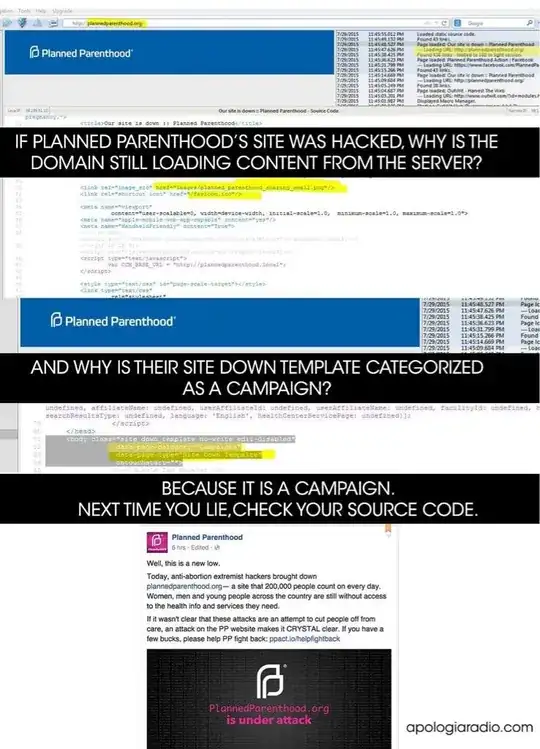Claim
This answer attempts to respond to the following claim (from the images in the question):
Planned Parenthood (PP) faked being hacked
Basis
This claim is based on:
- Claims that PP is hacked (from Twitter)
- Data is being loaded from PP servers
- Source code including keywords that imply a campaign
- The website is reachable despite claims of an attack
Summary - why this basis is not sufficient
Briefly said (see discussion below the answer), the claim that the hack was fake comes from the servers PP claims are hacked. If the servers are indeed hacked, the attacker has the same control over the servers that PP would normally have, and is therefore able to falsify the basis of the claim (at least, points 2 through 4). Without information from a source independent of these servers, it cannot be determined whether the attack occurred or not.
Background
"Hacked" refers to the situation where someone unauthorized has access to the server. This means that integrity was compromised (see this section and its reference on wikipedia, or a basic computer security course for more details). This means that the attacker can make modifications to the system as if she were the administrator of the website. What specific changes are possible depends on the details of the case, but in general this means it is not possible to distinguish changes made by an attacker from changes made by the administrators. Thus, strictly speaking, we can't make a judgement about whether a hack is "real"; the attacker/hacker can always make it look as if the attack was fake, unless there is an additional source of information independent of the potentially affected website. As the website in question discusses a sensitive issue for some, it is at least plausible that this occurred, and it similar to website defacement, a technique often used to discredit websites by teenagers in the past, and currently by activists and politically motivated persons.
